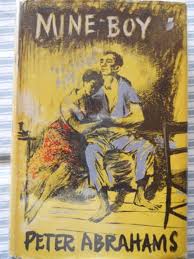The literary fraternity has been
reeling with the recent death of Flaxman Qoopane, a long standing
flamboyant journalist, author, poet, and literary activist.
The award winning, incredibly
prolific writer, Chief O Bolaji, whilst wrapped in sorrow over Qoopane’s death,
briefly went down memory lane this week as he reflected on his close association
with the late writer over the decades. Bolaji said.
"When I first arrived in South Africa
over 20 years ago Qoopane was the one who took me under his wing, showing me
the ropes as it were. We were so close that many people used to refer to us as
twins! Qoopane himself used to say that I was the only real friend he had.
“But this was not strictly
true of course, as he was a friendly man, ebullient and effervescent to boot, with
so many people he was quite close to. There was the great Gilbert Modise for
one; and other people strutting their stuff in arts and culture.
“But it was true that in terns of
working together and letting our hairs down too, I was the closest to him,”
Bolaji continued. “ Professionally we worked on countless stories, news,
articles, features and the like. We wrote for publications like Next, Realtime,
Hola, Daily Sun, Mangaung News, Free State News, Kopanang, E and E magazine…
Bolaji laughed lightly, going on: “You know he (Qoopane) was a born journalist.
His glee knew no bounds after his writings came out in any publication – he would
issue whoops of delight and canter around like the free spirit he was. He
meticulously kept hundreds of stories we wrote over the years; whilst I do not
even have just one, myself now!
“As regards relaxation, we did that
a lot. He was so generous that whenever any remuneration came in he would
insist on buying us drinks first with his own share of the money. We would go
to many joints or centres, enjoy beers and fine food (laughing). He has written
about this in some of his books like Adventures
in Journalism
“We’ll return to the books
presently, but I must also stress that he used to be something of a ladies’ man
too… as he was so famous,” Bolaji pointed out. “He knew I was very shy but yet
he would introduce ladies to me and encourage them to follow me to my place…with
that prodding, authoritative baritone voice of his!”
Talking about books, Bolaji
stressed: “As for Qoopane’s books, he published over ten of them, more or less all
of them important for historical, scholarly, sociological or journalistic
reasons. The books included A poet
abroad, The Conference, Macufe 2001 and his favourite work, Reneiloe-Mpho’s story which involved his beloved daughter, now a beautiful
young woman. I will give you a full list of his books at the end…”
“To be honest, I would need a book
to talk about Mr Qoopane, but let me just stress two other things briefly.
Firstly at the latter part of his life he was blessed with a wonderful wife,
Mme Emily (a writer herself), who gave him much happiness. Secondly, he was a
very versatile, finicky, punctilious writer; he published biographies, fiction,
criticism, poetry, general works, and lots more. His departure is horrific for
arts and culture”
- Feature by Dan Xangaza
BOOKS
BY FLAXMAN QOOPANE
A
Poet Abroad
Memoirs of a Cultural Activist
Adventures in Journalism
Reneiloe-Mpho's story
Macufe 2001
Women of Talent
Gilbert Modise: the man and the myth
View from my Window
Omoseye Bolaji: Perspectives on his literary work
The Conference
THE CREST
City of Roses and Literary Icons
Scintillating stars from the vibrant soil







